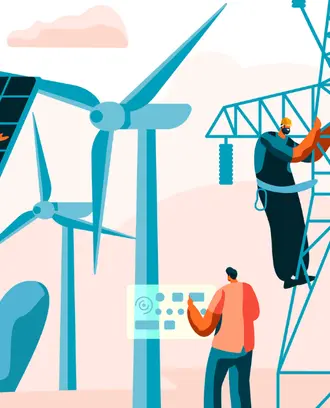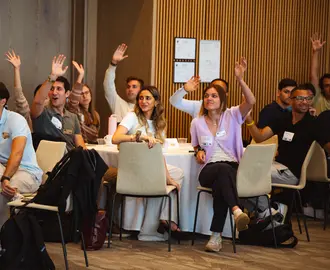Our Sustainability Initiative team stands with community leaders, activists, organizations, and MIT leadership as we work collectively to advance diversity, equity, inclusion, and justice. We are steadfast in our commitment to educate ourselves, set and pursue ambitious goals, and share our progress as we do our bit to build a better world, and better MIT.
We see our contributions to this work in 4 phases, with our team now happy to share we are operating in "Phase 2" of our DEIJ action plan.
Phase 2 as of June 2023 | Additional phases to be added, as needed.
Phase 0 | Looking Inward (Completed): Amidst the turmoil of summer 2020, we looked inward, thought critically, and engaged in conversations about diversity, equity, inclusion, and justice (DEIJ). Drawing on the insights and experiences of our community, we committed to dedicating our time and resources to embedding DEIJ into the fabric of our mission, and began brainstorming individually.
Phase 1 | Pilot Actions (Completed): During a special DEIJ "offsite" in fall 2020, our team came together to work through each pillar of our mission and identify initial actions we could take or amplify in the short term, while planning ahead for future phases. Below are the actions we completed between 2020 and 2021.
Phase 2 | Setting Goals + Tracking Efforts (Recently Launched): In phase two, we're continuing with our approach of embedding efforts under each bucket of our mission, experimenting with new ways to track our efforts and set goals, and identifying what our role can be in this space at MIT. Each team member has set goals that tackle both near and long term, more ambitious goals. During this phase, we'll begin to align our efforts with MIT Sloan's DEI goals and KPIs as they begin to be rolled out. Expect an update on goals and our longer term planning in July, 2022.
Phase 3 | Ongoing Learning + Improvement: By this phase, we'll be focussed on improving our efforts through continued learning and engagement, guided by key metrics and targets. Our work will be closely aligned and co-evolving with efforts at MIT, including emerging Sloan + MIT administration, student, staff, faculty, and alumni initiatives and targets. We'll be held accountable by engaging with our Advisory Board, students, alumni, and faculty/subject matter experts, in addition to report outs to our community.
More information and updates to come | Last Updated, 03/31/2022



